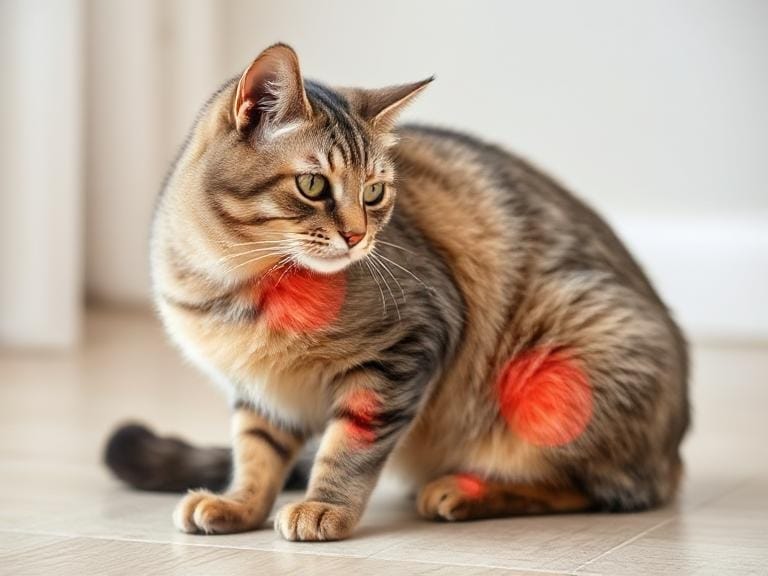
Table of Contents
As our feline companions age, they often face health challenges similar to those experienced by humans. One of the most common yet frequently overlooked conditions in senior cats is arthritis. Arthritis in senior cats is a degenerative joint disease that causes pain, stiffness, and reduced mobility, significantly impacting their quality of life. Unfortunately, because cats are masters at hiding discomfort, arthritis often goes undiagnosed until it reaches an advanced stage. This article delves into the symptoms, diagnosis, and treatment options for arthritis in senior cats, providing cat owners with the knowledge they need to help their furry friends live more comfortable lives.
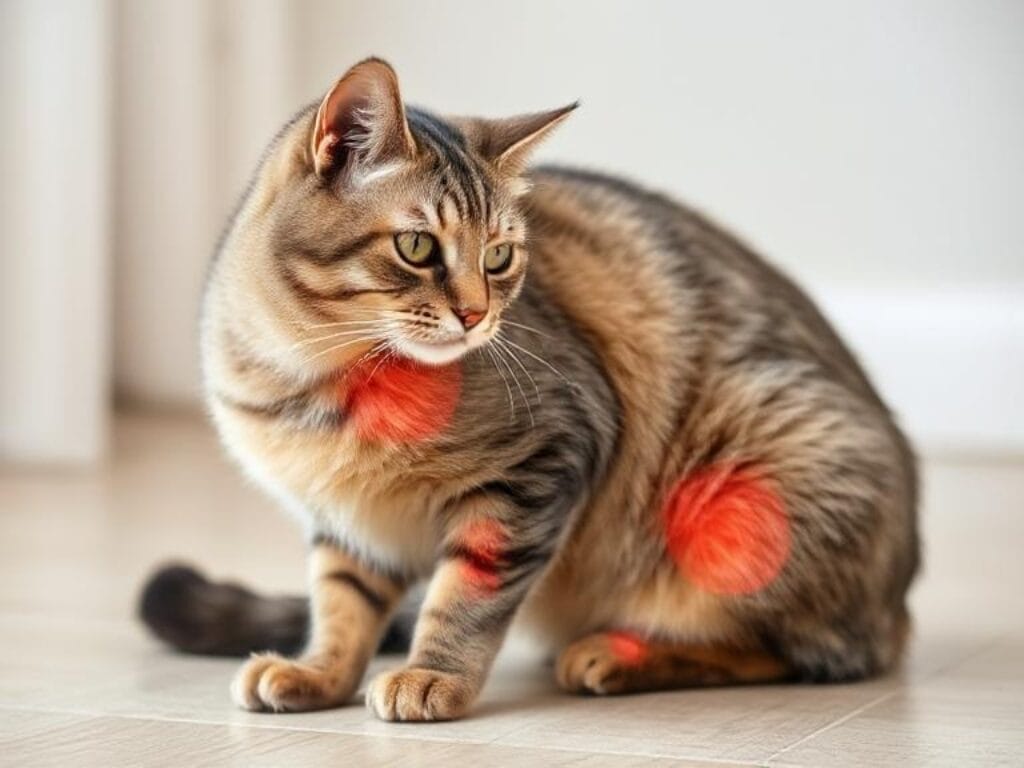
Understanding Arthritis in Senior Cats
Arthritis, also known as osteoarthritis or degenerative joint disease, is a chronic condition characterized by the inflammation and deterioration of joint cartilage. In senior cats, this condition is often a result of wear and tear over time, though it can also be influenced by genetics, obesity, or previous injuries.
Joints are cushioned by cartilage, which allows for smooth movement. When this cartilage breaks down, bones begin to rub against each other, causing pain, swelling, and stiffness. While arthritis can affect any joint, it is most commonly seen in the hips, knees, elbows, and spine of senior cats.
Symptoms of Arthritis in Senior Cats
Recognizing the signs of arthritis in senior cats can be challenging, as cats are naturally adept at masking pain. However, there are several subtle and not-so-subtle symptoms that may indicate your cat is suffering from this condition:
1. Reduced Mobility
- Reluctance to jump onto furniture or climb stairs.
- Difficulty getting in and out of the litter box.
- Stiffness, especially after resting.
2. Changes in Grooming Habits
- Over-grooming painful joints.
- Neglecting grooming altogether due to discomfort.
3. Behavioral Changes
- Increased irritability or aggression.
- Withdrawal from social interactions.
- Lethargy or decreased activity levels.
4. Physical Signs
- Swelling or warmth around joints.
- Visible discomfort when touched or petted.
- Limping or favoring one leg.
5. Weight Loss or Gain
- Loss of muscle mass due to reduced activity.
- Weight gain from decreased mobility.
Diagnosing Arthritis in Senior Cats
If you suspect your senior cat may have arthritis, it’s essential to consult a veterinarian for a proper diagnosis. The diagnostic process typically involves:
1. Physical Examination
The vet will assess your cat’s joints for swelling, warmth, and range of motion. They may also observe your cat’s gait and posture.
2. Medical History
Providing your vet with a detailed history of your cat’s symptoms and behavior can help in making an accurate diagnosis.
3. Imaging Techniques
- X-rays: These can reveal joint damage, bone spurs, or changes in joint structure.
- MRI or CT Scans: These advanced imaging techniques may be used in complex cases.
4. Blood Tests
While blood tests cannot diagnose arthritis, they can rule out other conditions with similar symptoms, such as infections or autoimmune diseases.
Treatment Options for Arthritis in Senior Cats
While arthritis is a progressive condition with no cure, several treatment options can help manage symptoms and improve your cat’s quality of life. Treatment plans are often multimodal, combining medical, environmental, and lifestyle interventions.
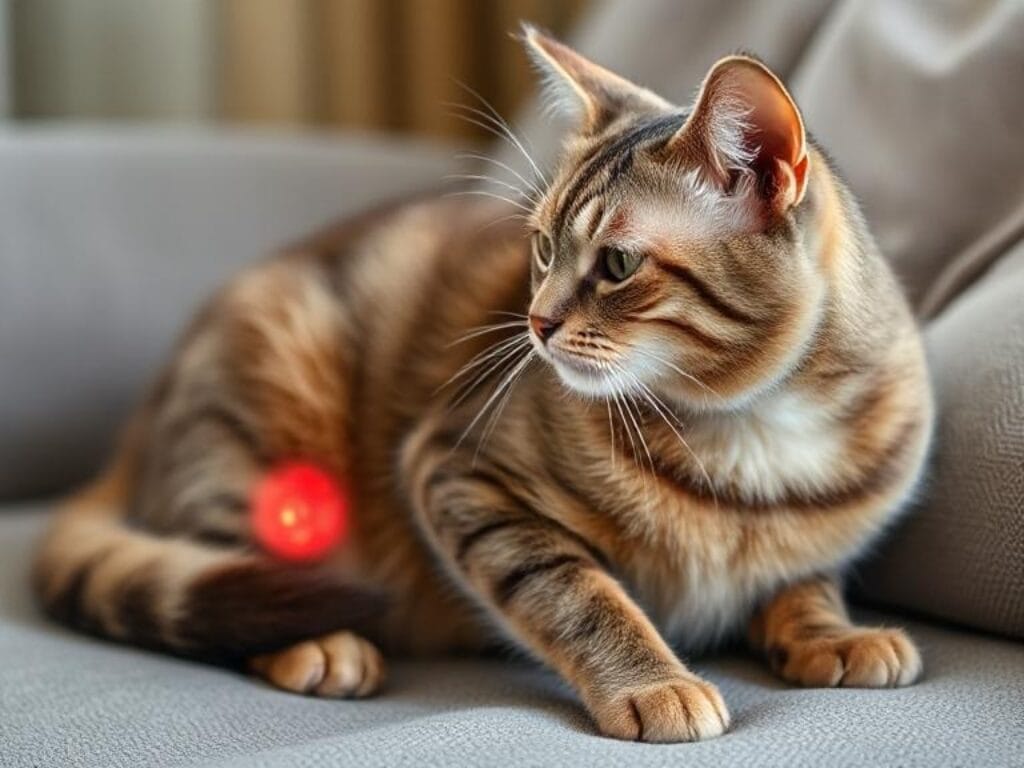
1. Medications
- Non-Steroidal Anti-Inflammatory Drugs (NSAIDs): These are commonly prescribed to reduce inflammation and pain. However, they must be used cautiously, as cats are more sensitive to NSAIDs than other animals.
- Pain Relievers: Medications like gabapentin may be used to manage chronic pain.
- Joint Supplements: Glucosamine and chondroitin sulfate can help support joint health and slow cartilage deterioration.
2. Weight Management
Excess weight puts additional strain on joints, exacerbating arthritis symptoms. A balanced diet and portion control can help your cat maintain a healthy weight.
3. Physical Therapy
- Controlled Exercise: Gentle play sessions can help maintain joint flexibility and muscle strength.
- Massage Therapy: This can improve circulation and reduce stiffness.
4. Environmental Modifications
- Soft Bedding: Provide comfortable, supportive bedding to ease joint pressure.
- Ramps or Steps: These can help your cat access favorite spots without jumping.
- Low-Sided Litter Boxes: Make it easier for your cat to get in and out.
5. Alternative Therapies
- Acupuncture: This ancient practice can help relieve pain and improve mobility.
- Laser Therapy: Low-level laser therapy can reduce inflammation and promote healing.
6. Surgical Options
In severe cases, surgery may be recommended to repair or replace damaged joints. However, this is typically a last resort due to the risks associated with anesthesia in senior cats.
Preventing Arthritis in Senior Cats
While arthritis cannot always be prevented, there are steps you can take to reduce your cat’s risk:
- Maintain a Healthy Weight: Avoid overfeeding and provide a balanced diet.
- Regular Exercise: Encourage gentle play to keep joints flexible.
- Routine Vet Checkups: Early detection can help manage symptoms before they worsen.
Living with a Senior Cat with Arthritis
Caring for a senior cat with arthritis requires patience and understanding. Here are some tips to make life easier for your feline friend:
- Monitor Their Comfort: Pay attention to changes in behavior or mobility.
- Provide Emotional Support: Spend quality time with your cat to reduce stress and anxiety.
- Stay Consistent: Stick to a routine to help your cat feel secure.
Conclusion
Arthritis in senior cats is a common yet often overlooked condition that can significantly impact their quality of life. By recognizing the symptoms early and seeking appropriate treatment, cat owners can help their furry companions live more comfortable and fulfilling lives. From medications and weight management to environmental modifications and alternative therapies, there are numerous ways to manage this condition. Remember, your veterinarian is your best ally in ensuring your senior cat receives the care they need. With love, patience, and the right interventions, you can make a world of difference for your arthritic feline friend.
FAQ: Arthritis in Senior Cats
What are the signs of arthritis in senior cats?
Arthritis can be subtle in cats since they tend to hide pain. Look for signs such as:
– Reduced activity and reluctance to jump or climb
– Stiffness, especially after resting
– Difficulty using the litter box (especially high-sided ones)
– Changes in grooming habits (overgrooming sore joints or not grooming enough)
– Increased irritability or withdrawn behavior
How is arthritis diagnosed in cats?
A vet will typically diagnose arthritis through a combination of:
– Physical examination (checking for joint stiffness and pain)
– X-rays or other imaging to assess joint damage
– Observation of mobility and behavior changes at home
What treatment options are available for arthritis in cats?
Treatment focuses on pain relief and improving mobility. Options include:
– Pain medication (prescribed by a vet, like NSAIDs for cats)
– Joint supplements (glucosamine, chondroitin, omega-3 fatty acids)
– Weight management (reducing excess weight to ease joint strain)
– Physical therapy & gentle exercise to maintain mobility
– Environmental modifications (e.g., ramps, soft bedding, low-entry litter boxes)
Can diet help manage arthritis in senior cats?
Yes! A balanced diet with added omega-3 fatty acids and joint-supporting nutrients can help reduce inflammation and improve joint health. Prescription diets formulated for joint care may also be recommended by a vet.
How can I make my home more comfortable for a cat with arthritis?
– Provide soft, supportive bedding in easily accessible areas
– Use ramps or steps to help them reach favorite spots
– Offer a low-sided litter box for easy access
– Keep food and water bowls at an easy-to-reach height
– Use heated pads or warm blankets to soothe stiff joints
Sources
- Arthritis in Cats: Symptoms, Causes, and Treatment: https://www.petmd.com/cat/conditions/musculoskeletal/c_ct_osteoarthritis
- Feline Arthritis: A Painful Condition: https://www.vet.cornell.edu/departments-centers-and-institutes/cornell-feline-health-center/health-information/feline-health-topics/feline-arthritis-painful-condition
- Managing Arthritis in Cats: https://www.bluecross.org.uk/pet-advice/arthritis-cats
- Joint Supplements for Cats: https://www.aspca.org/pet-care/cat-care/common-cat-diseases/arthritis
- Laser Therapy for Pets: https://www.akc.org/expert-advice/health/laser-therapy-for-dogs-and-cats/
- Acupuncture for Cats: https://www.veterinarypracticenews.com/acupuncture-for-cats/




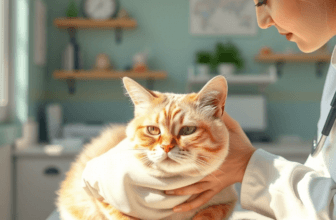

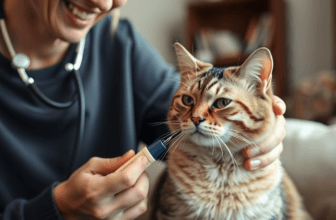

[…] cats age, their ability to regulate body temperature diminishes. Senior cats often suffer from arthritis, joint pain, and reduced circulation, making them more vulnerable to cold weather. Prolonged […]